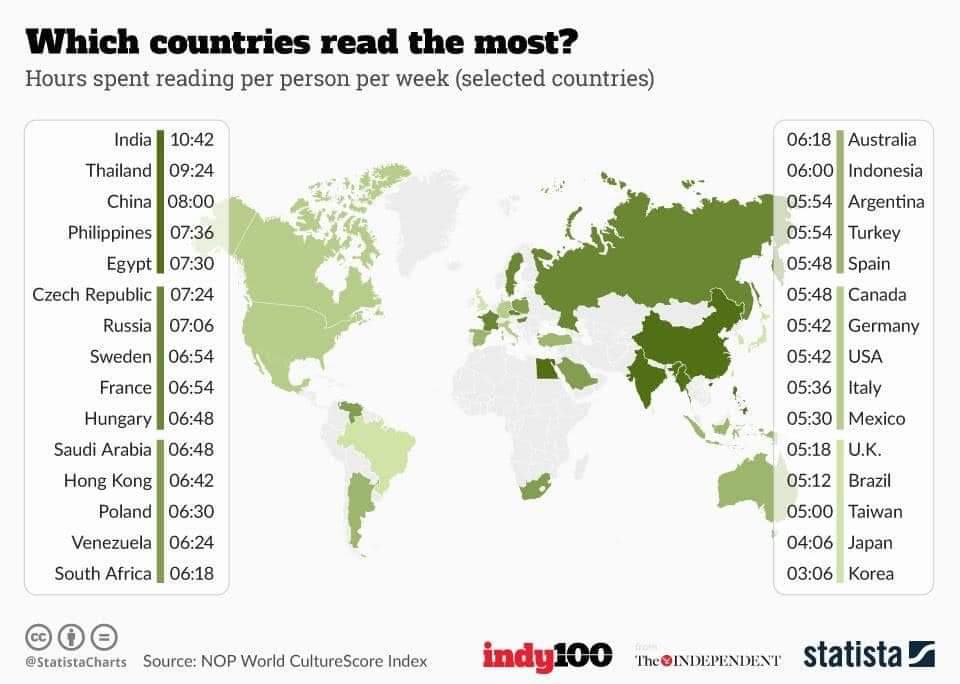
The World Culture Score Index conducted a global study to measure the amount of time that people around the world spend reading on a weekly basis. The results of this study do not specify what type of material is being read, which could be anything from online news to work e-mails and magazines to books in print. Additionally, the study does not report specific information about the people surveyed (like age, educational level, or sex) or how many people were surveyed. The findings are as follows:
India
India topped the list with its citizens reporting an average of 10 hours and 42 minutes a week spent reading. Achieving the number 1 position on the list is quite an accomplishment for this country, which has a literacy rate that is lower than the global average (only 74%). This rate has, however, increased by more than 6 times since the country gained its independence in 1947, which could be an indicator of an increasing interest in reading. This time spent reading does not necessarily reflect the amount of time reading printed books, however, and may include time spent reading online or in electronic format.
Thailand
Thailand is the country with the second highest number of hours spent reading. Here, survey respondents reported that they spend a weekly average of 9 hours and 24 minutes reading. Additional surveys have found that approximately 88% of the population reads book in print and spend around 28 minutes a day reading them. This means that significantly more time is spent reading online. As seen in India, smartphones and tablets have changed reading habits in Thailand as well. In fact, the amount of time spent reading books in print has decreased from reports published in previous years.
China
The third greatest amount of time spent reading is in China, where survey respondents report spending around 8 hours every week partaking in this activity. This country has a 96.4% literacy rate, which is higher than the global average of 86.3%. Of this time, only around 11 minutes a day are spent reading newspapers and magazines. In a study conducted by the OECD, researchers found that over 90% of students in Shanghai, China report reading for entertainment purposes, which is an increase over previous years. This increase indicates that perhaps reading is gaining popularity among the citizens of this country.
There’s no telling how rising levels of education during the past 15 years might have affected these rankings, much less how the pandemic might have changed reading habits in countries with the heaviest load of the disease.
All we can assume is that the numbers would have gone even higher, owing to the large amount of time that has been spent in quarantine by most of the world.
























